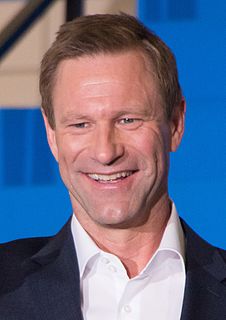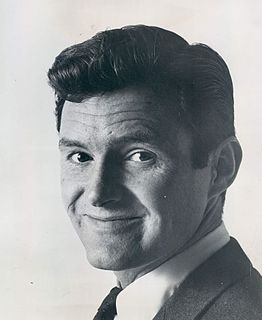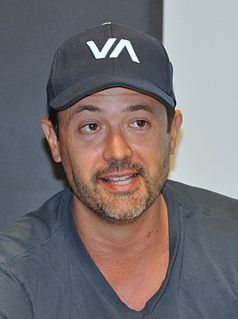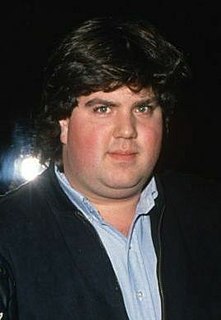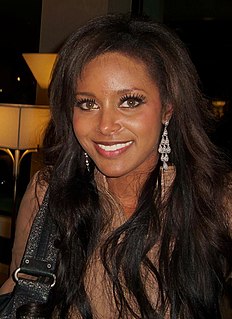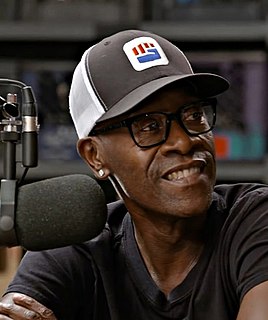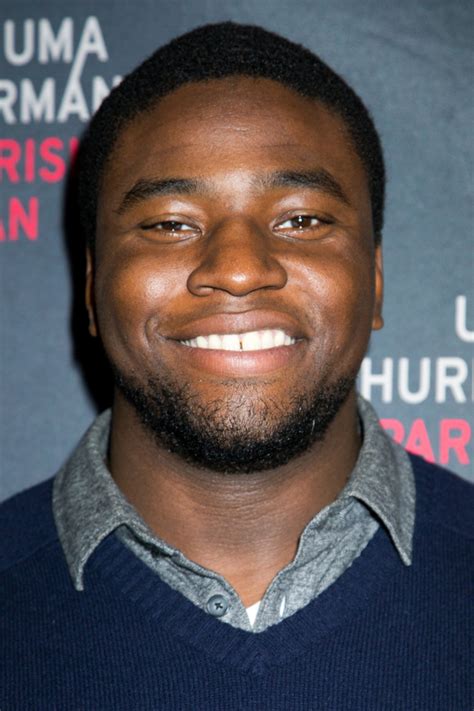A Quote by Paul Dini
Encourage your kids to be creative. When you see them tracing a character from TV or a comic, say something like, 'That's nice. Now how about you create a character yourself?' Keep kids curious and excited about creating.
Related Quotes
I felt like it was something that didn't represent how I wanted to present myself. Now I'll see kids I come across on Twitter or Comic-Con, and they'll smile and I'll be like, "You have a crooked mouth like I have a crooked mouth!" We just sit there, and I talk about it with them and they feel better about themselves.
There are just certain things you can't talk about with kids. I just totally do not believe in this sort of Bart Simpson character who infects so much of our literature and film and TV stuff nowadays, these know-it-all kids who seem to understand the hypocrisy of the adult world so thoroughly and can talk about it with such articulateness. That's bunk. Kids are kids; they're innocents, they really are. For a long time, no matter what they see, no matter what they're exposed to, they can't get it until they have developed enough.
I have done scenes as Harvey Two-Face. It's interesting. I won't tell you exactly what we're going for, but I think that I can say that it will use all of today's technology to create this character. He's going to be interesting, and I think that's what makes this character important in the movie-you get to see him as he was before, as in the comic books. Harvey is a very good guy in the comic books. He's judicious. He cares. He's passionate about what he loves and then he turns into this character. So you will see that in this film.
Now 3D is no longer a fad but I don't get all crazy about it and say that everything has got to be in 3D. It is a nice tool, like color or sound or whatever. I was quite intrigued and I learned, 3D opened up a lot of questions about how to use it. I think it is great. It's like if a movie needs to be in black and white then that's how I will shoot it. I see color as just another character or black and white as a character.
Our whole goal is really to create a culture of accountability. Because for a very long time, ending sexual assault has been on the backs of survivors. And it's really up to everyone to be part of the solution. It's really about not creating a culture of awareness. It's something I often tell parents of kids who are going off to college: It's about asking those hard questions when your kids are applying to school and encouraging them to ask about their rights, to ask about their resources.
When you go for something because you're curious about it, you get psyched up about the chance of getting into it. It's like an actor meets a role, and you slip into that body and see what happens, to experience certain conditions, to adopt a certain character. Even shooting is a study of the character. I think both the character and the actor, and eventually the filmmaker - myself - are finding a way to accept their environment and being accepted and feel comfortable of themselves.
It's been nice, actually, to keep in touch with a lot of the people and families that I've written about. Like with the kids I was just writing about from Guatemala, who survived being kidnapped and fleeing violence, it was nice to just sit down in their living room and play bingo with them, go to dinner with the family. And sometimes not thinking about it in such a mechanistic "I am now coming to report and get what I need" way, but just spending time, helps you see a more natural version of who they are too.




